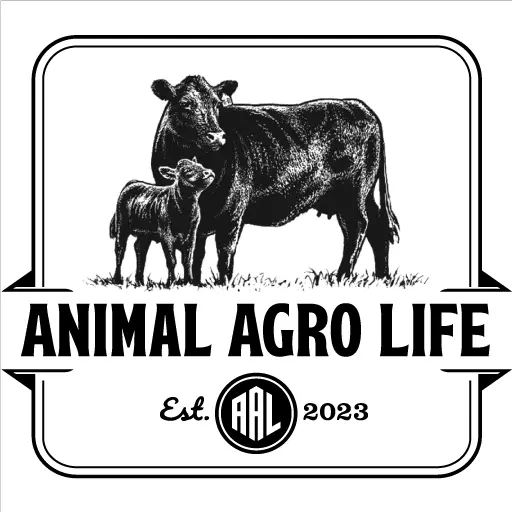Did you know that the Black Iberian Pig is behind some of the world’s most exceptional and expensive hams? This particular breed of pig hails from Spain and Portugal, and it’s known for its unique marbling and rich flavor.
Unlike other pigs, black Iberian pigs are raised in a semi-wild environment that allows them to roam and forage for food. This diet gives the pigs a healthy fat content that contributes to the marbling in their meat. Additionally, the pigs are slaughtered at a later age, which allows their meat to develop a more complex flavor.
After the pigs are slaughtered, their hams are cured for a long period of time, typically 18 to 24 months. This curing process helps to concentrate the meat’s flavors and gives the hams a distinctive texture.
Black Iberian hams are considered a delicacy and are often served on special occasions. They are sliced thinly and served with bread, cheese, and wine. These hams can also be used in other dishes, such as salads and pasta dishes.
Table of Contents
The History of Black Iberian Pig

The black Iberian pig has been an integral part of Spain and Portugal’s cultural heritage for centuries. This ancient breed is believed to have descended from wild boars that once roamed the Iberian Peninsula. Known for its unique marbled meat and rich flavor, the Black Iberian Pig is raised in a semi-wild environment, allowing it to roam and forage for food. This diet contributes to the healthy fat content that gives the meat its distinctive flavor.
The black Iberian pig has been prized for its meat for centuries, with Spanish King Philip II even declaring black Iberian ham a national treasure in the 16th century. Today, the meat remains a delicacy and is often served on special occasions. The pig is celebrated in art, literature, festivals, and traditions, making it a cultural icon in Spain and Portugal.
What Is a Black Iberian Pig?

The Black Iberian Pig (also known as the Pata Negra Pig) is a breed of pig native to the Iberian Peninsula of Spain and Portugal. It is known for its high-quality meat, which is used to make some of the most expensive and sought-after hams in the world.
Black Iberian pigs are typically raised in a semi-wild environment, where they are free to roam and forage for food. This diet gives the pigs a healthy fat content, which contributes to the marbling of their meat. The pigs are also slaughtered at a later age than other breeds of pigs, which allows their meat to develop a more complex flavor.
Black Iberian hams are cured for a long period of time, typically 18 to 24 months. This curing process helps to concentrate the flavors of the meat and gives the hams a distinctive texture.
Black Iberian hams are considered a delicacy, and they are often served as part of special occasions. The hams are sliced thinly and served with bread, cheese, and wine. They can also be used in other dishes, such as salads and pasta dishes.
Anatomy and Physical Appearance

The black Iberian pig is a beautiful, medium-sized animal with a unique and striking black coat. These pigs are known for their long, slender snouts and narrow heads, along with their small, pointed ears and long, slender legs. The pigs are also notable for their well-developed muscle structure and thick layer of fat, making them a highly sought-after breed for meat production.
Characteristics of the Black Iberian Pig:
- Coat: This breed boasts a unique and striking black coat that is short and coarse. It may also have a few white markings.
- Snout: The black Iberian pig has a long, slender, and slightly upturned black snout that adds to its distinctive appearance.
- Head: With a narrow head and a slight Roman nose, the black Iberian pig has an elegant profile that sets it apart from other breeds.
- Ears: The pig’s small pointed ears are covered in short, coarse black hair and add to its overall aesthetic appeal.
- Legs: Long and slender, the pig’s black legs are covered in short, coarse hair that adds to its rugged and robust look.
- Muscle Structure: Known for its well-developed muscle structure, the Black Iberian Pig produces marbled meat that is highly prized for its flavor and texture.
- Fat Layer: The pig’s thick layer of fat is distributed throughout its body, contributing to the unique taste and mouthfeel of the meat it produces.
Characteristics and Personality

The Black Iberian pig is truly one-of-a-kind, boasting a stunning black coat with white markings, a long and slender snout, and a narrow head with a slight Roman nose. Its small, pointed ears and black legs covered in coarse hair add to its rugged and robust appearance. But beyond its striking appearance, this breed is known for its gentle and intelligent nature, as well as its curious and playful personality. These social animals love to be around other pigs and people alike, making them a joy to be around. With their well-developed muscle structure and a thick layer of fat, the meat they produce is highly prized for its unique flavor and mouthfeel.
The Black Iberian pig is truly a remarkable breed that possesses a number of desirable traits. Here are five reasons why this breed is so special:
- Gentle: With their calm and even temperament, the Black Iberian pig is a gentle and docile breed that is easy to handle and care for.
- Intelligent: These pigs are highly intelligent and quick learners, making them easy to train for simple tasks and tricks.
- Curious: The Black Iberian pig is a naturally inquisitive breed that enjoys exploring its environment and discovering new sights and smells.
- Playful: These pigs have a playful and mischievous streak that makes them a joy to be around. They love playing with toys and interacting with other pigs and people.
- Social: The Black Iberian pig is a social animal that thrives in the company of others. They form strong bonds with their herd mates and human companions, making them a delightful addition to any farm or home.
Growth Rate of Iberian Pig
Here is a table of the growth rate of Iberian pigs:
| Age (weeks) | Weight (kg) | Average daily gain (g) |
|---|---|---|
| 4 | 8.0 | 250 |
| 8 | 20.0 | 375 |
| 12 | 35.0 | 500 |
| 16 | 50.0 | 750 |
| 20 | 65.0 | 1000 |
| 24 | 80.0 | 1250 |
It is crucial to remember that the growth rate of Iberian pigs is not set in stone and may vary based on several factors, such as genetics, environment, and diet.
For instance, Iberian pigs that are raised in a semi-wild environment and provided with a nutritious diet tend to grow faster than those confined and given a low-quality diet.
Furthermore, some Iberian pigs are bred for their meat production, while others are bred for their fat production. Those bred for meat production tend to have a higher growth rate than those bred for fat production.
Despite being a slow-growing breed, the Black Iberian pig is known for producing high-quality meat that is highly sought after due to its exceptional flavor and texture.
How Fast Do Black Iberian Pigs Grow?

Black Iberian pigs are a slow-growing breed of pig. They typically reach slaughter weight at around 18-24 months of age. This is longer than other breeds of pigs, such as Yorkshire pigs, which typically reach slaughter weight at around 6 months of age.
The slow growth rate of Black Iberian pigs is due to a number of factors, including their genetics, diet, and environment. Black Iberian pigs are bred for their meat quality, not their growth rate. They are also raised in a semi-wild environment and fed a diet of acorns and other natural foods. This diet contributes to the flavor and texture of the meat, but it also slows down the pigs’ growth rate.
Despite their slow growth rate, black Iberian pigs are a valuable breed of pig. Their meat is prized for its flavor and texture, and it is used to make some of the most expensive and sought-after hams in the world.
Do black Iberian pigs need to be trained?
Black Iberian pigs are a highly intelligent breed of pig, but they are not typically house-trained. This is because they are naturally clean animals and prefer to do their business outside. However, it is possible to train a black Iberian pig to use a litter box, especially if you start training them when they are young.
If you decide to house train your black Iberian pig, be sure to use a large litter box and place it in a quiet area where they will not be disturbed. You should also clean the litter box regularly to prevent the build-up of waste and odor.
Here are some tips for house-training a black Iberian pig:
- Start training your pigs when they are young.
- Use a large litter box and place it in a quiet area.
- Clean the litter box regularly.
- Reward your pig when they use the litter box correctly.
- Be patient and consistent with your training.
Black Iberian pigs can be sensitive.

Yes, Black Iberian pigs can be sensitive animals. They are known for being intelligent and curious, and they can also be quite affectionate. However, they can also be easily startled and frightened.
Here are some things to keep in mind when interacting with black Iberian pigs:
- Approach slowly and calmly.
- Avoid making loud noises or sudden movements.
- Be gentle when handling them.
- Do not pull on their tail or ears.
- If they become agitated, back away and give them some space.
advantages and disadvantages
Advantages:
- High-quality meat: Iberian pigs are known for their high-quality meat, which is prized for its flavor and texture. The meat is marbled with fat, which gives it a rich and juicy flavor.
- Hardy breed: Iberian pigs are a hardy breed of pig that is well-suited to a variety of climates. They are also relatively resistant to disease.
- Intelligence: Iberian pigs are a very intelligent breed of pig. They are quick learners and can be trained to perform simple tasks.
- Gentle nature: Iberian pigs are known for their gentle and docile nature. They are also very social animals and enjoy being around other pigs and people.
Disadvantages:
- Slow growth rate: Iberian pigs are a slow-growing breed of pig. They typically reach slaughter weight at around 18–24 months of age. This is longer than other breeds of pigs, such as Yorkshire pigs, which typically reach slaughter weight at around 6 months of age.
- High cost: Iberian pigs are a more expensive breed of pig to raise than other breeds. This is due to their slow growth rate and the high cost of their diet.
- Limited availability: Iberian pigs are a relatively rare breed of pig. They are primarily raised in Spain and Portugal, and they are not widely available in other parts of the world.
Overall, Iberian pigs are a valuable breed of pig with a number of advantages and disadvantages. The high-quality meat and hardy nature of the pigs are some of the key advantages of this breed. However, the slow growth rate, high cost, and limited availability are some of the key disadvantages of Iberian pigs.
Breeding and Life Expectancy
Iberian pigs are typically bred in semi-wild conditions, where they have access to plenty of space and forage. They are also fed a diet of acorns, which contributes to the unique flavor and texture of their meat.
Iberian pigs reach sexual maturity at around 6-8 months of age. However, they are not typically bred until they are at least 12 months old. This is because they need time to reach full maturity and produce high-quality meat.
The gestation period for Iberian pigs is around 114 days. Female Iberian pigs typically give birth to a litter of 4-6 piglets. The piglets are weaned from their mother at around 8 weeks of age.
Iberian pigs typically live for 12-15 years. However, some pigs have been known to live for up to 20 years.
Here are some tips for breeding Iberian pigs:
- Select healthy and well-formed breeding stock.
- Provide the pigs with a semi-wild environment where they have access to plenty of space and forage.
- Feed the pigs a diet of acorns and other natural foods.
- Do not breed the pigs until they are at least 12 months old.
- Be prepared to provide the piglets with extra care and attention after they are born.
Black Iberian Pig Meat
Black Iberian pig meat is known for its high quality, unique flavor, and marbled texture. It is considered to be one of the most expensive and sought-after types of pork in the world.
Black Iberian pigs are a native breed of pig to the Iberian Peninsula of Spain and Portugal. They are raised in a semi-wild environment where they are free to roam and forage for food. This diet gives the pigs a healthy fat content, which contributes to the marbling of their meat.
The pigs are also slaughtered at a later age than other breeds of pigs, which allows their meat to develop a more complex flavor.
Black Iberian pig meat is typically cured and aged for a long period of time, typically 18 to 24 months. This curing process helps to concentrate the flavors of the meat and gives it a distinctive texture.
Black Iberian pig meat is often used to make hams, sausages, and other cured meats. It is also used to make fresh pork dishes, such as chops, roasts, and stews.
Black Iberian pig meat is a delicious and nutritious food. It is a good source of protein, iron, and zinc. It is also high in monounsaturated fats, which are considered to be healthy fats.
types of hams are made from Black Iberian pig’s meat
There are two main types of ham that are made from black Iberian pig’s meat:
- Jamón Ibérico de Bellota: This is the highest quality type of jamón ibérico, and it is made from pigs that have been fed a diet of acorns. Jamón Ibérico de Bellota is known for its rich flavor, smooth texture, and intense marbling.
- Jamón Ibérico: This type of jamón ibérico is made from pigs that have been fed a combination of acorns and other grains. It is still a high-quality product, but it has a slightly less intense flavor than jamón ibérico de bellota.
Both types of jamón ibérico are cured for a long period of time, typically 18 to 24 months. This curing process helps to concentrate the flavors of the meat and gives it a distinctive texture.
In addition to jamón ibérico, there are a number of other types of hams that are made from black Iberian pig’s meat. These include:
- Paletas Ibérica: Paletas ibérica are made from the front legs of the pig, and they are typically smaller and less expensive than jamón ibérico.
- Cañas de Lomo Ibérico: Cañas de lomo ibérico are made from the loin muscle of the pig, and they are typically smoked and cured.
- Chorizo Ibérico: Chorizo ibérico is a type of Spanish sausage that is made from ground black Iberian pig meat, paprika, and garlic.
All of these hams are made from black Iberian pig’s meat, and they are all delicious and nutritious foods. They are a good source of protein, iron, and zinc. They are also high in monounsaturated fats, which are considered to be healthy fats.
Black Iberian pig hams are a popular delicacy in Spain and Portugal, and they are also enjoyed by people all over the world. They are a delicious and nutritious food that is perfect for special occasions or everyday meals.
FAQs about Black Iberian Pigs:
1. Why are these pigs black?
The black coat of these pigs is a result of natural selection! Their dark color absorbs heat from the Spanish and Portuguese sun, helping them regulate their body temperature during their free-range life. It also offers some protection from predators.
2. What makes their meat taste so special?
The unique flavor of Iberico pork comes from a combination of factors:
Diet: These pigs roam freely in oak groves, feasting on acorns and herbs. These acorns contribute to the rich, nutty taste and marbled fat of the meat.
Exercise: Their active lifestyle leads to well-developed muscles, resulting in more flavorful and tender meat.
Aging: Iberico ham undergoes a long, slow curing process, further amplifying the unique flavors and aromas.
3. Are they treated ethically?
Responsible farms prioritize the well-being of their black Iberian pigs. They ensure ample space for foraging, natural sunlight, and access to quality feed. Look for ethical certifications or independent research to choose products from responsible producers.
4. Why are they so expensive?
Several factors contribute to the higher price tag of Iberico pork:
Lower production: Compared to commercially raised pigs, black Iberian pigs are fewer in number due to their specialized rearing.
Higher feeding costs: A diet rich in acorns is more expensive than conventional feed.
Long curing process: The traditional aging process for Iberico ham requires time and skilled artisanship, adding to the cost.
5. How can I enjoy their deliciousness without breaking the bank?
While some cuts of Iberico pork are undeniably pricey, there are ways to experience its unique flavor without spending a fortune:
Look for smaller portions: Consider trying tapas-style servings or thinly sliced Iberico ham to savor the flavor without a hefty price tag.
Explore other cuts: Beyond the renowned ham, try Iberico loin steaks, sausages, or the flavorful secreto cut for a taste of the experience.
Seek seasonal deals or promotions: Some shops offer special discounts or tastings, allowing you to enjoy this prized pork at a more accessible price.
Remember, while Iberico pork is a culinary treat, responsible consumption and prioritizing ethical producers are crucial. Enjoy the experience with a grateful heart for the unique piggies and their role in this culinary tradition.
Here are some resources to learn more about Black Iberian Pigs, all ensuring safe and informative content:
General Information:
- National Geographic: https://eatcampogrande.com/blogs/kitchen/what-is-acorn-fed-iberico-pork – This article explores the unique lifestyle and cultural significance of black Iberian pigs.
- The Spruce Eats: https://farmingbase.com/black-iberian-pigs/ – This website provides a comprehensive overview of the breed, including history, diet, and meat characteristics.
- Iberian Pig Information Center: https://iberianswinedotus.wordpress.com/ – This non-profit organization offers detailed information about the breed, production standards, and sustainable practices.
Recipes and Food Information:
- Jamón Ibérico Spain: https://www.anniebspain.com/jamon-iberico-introduction/ – This website features recipes using Iberico pork, along with information on its different cuts and flavors.
- Serious Eats: https://eatcampogrande.com/blogs/kitchen/10-iberico-pork-recipes – This website offers several delicious and accessible recipes incorporating Iberico pork.
- The Guardian: https://www.theguardian.com/food/2022/nov/05/spanish-pork-potatoes-recipes-lentils-chorizo-pork-ribs-fried-herb-crumbs-jose-pizarro – This article provides tips on selecting and cooking Iberico pork, including advice on different cuts and cooking methods.
Documentaries and Videos:
- “Secrets of the Spanish Ham” – BBC Earth: This documentary explores the traditional production of Iberico ham, following the pigs from acorn-filled groves to the curing cellars.
- “Jamón” – Netflix: This Spanish film delves into the world of Iberico ham, showcasing its cultural importance and the dedication of artisans who produce it.
- “Spain’s Black Gold” – PBS: This documentary explores the history and production of Iberico ham, highlighting the connection between the pigs, the land, and the people who create this culinary treasure.
These resources offer safe and informative ways to learn more about Black Iberian Pigs, their fascinating lifestyle, and the delicious products they provide. I hope you enjoy exploring and learning more about these unique creatures!










